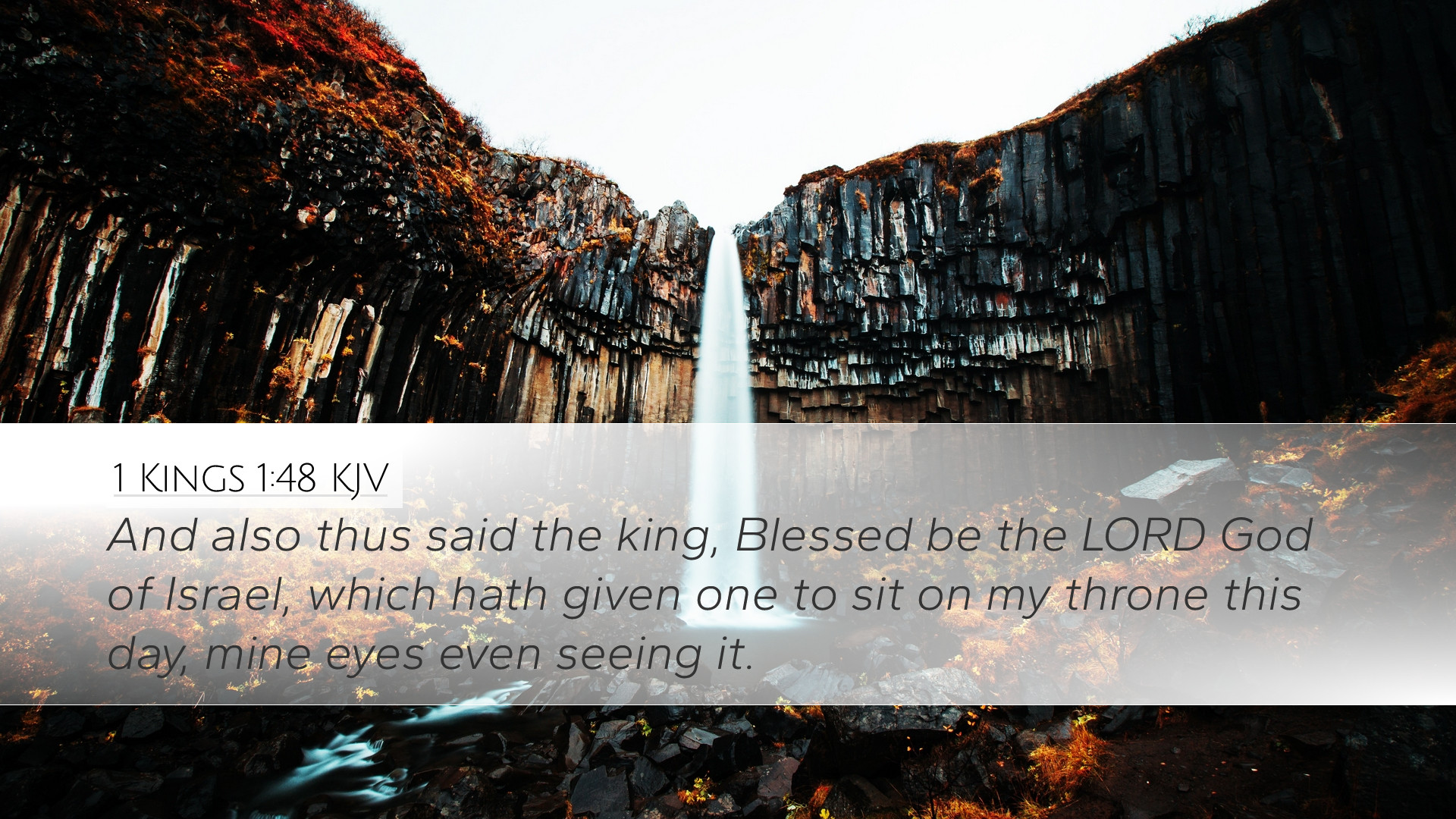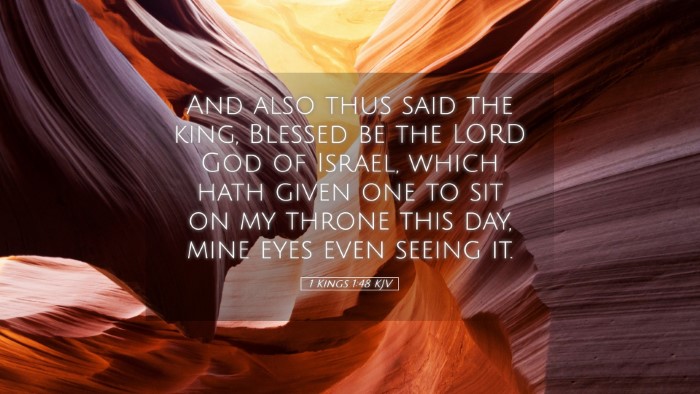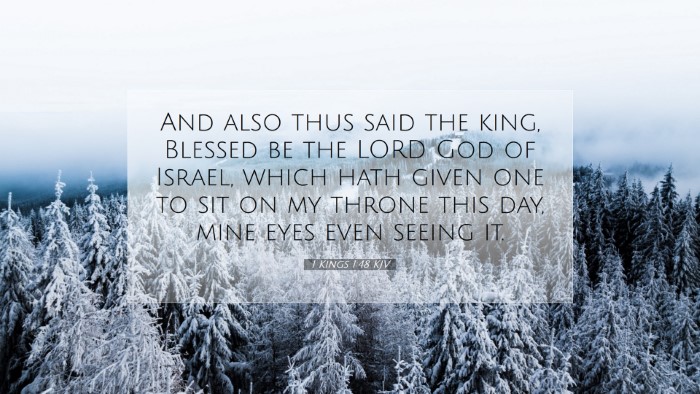Commentary on 1 Kings 1:48
Verse: "And also thus said the King, Blessed be the Lord God of Israel, which hath given one to sit on my throne this day, mine eyes seeing it."
Contextual Overview
This verse occurs during the transition of power from King David to his son Solomon. David, in his old age, acknowledges the fulfillment of God’s promise regarding Solomon's ascension to the throne. This moment is not only critical in the narrative of Israel's monarchy but is also pivotal in understanding the faithfulness of God in fulfilling His promises.
Theological Significance
This proclamation by David underscores the sovereignty and providence of God. Throughout the Old Testament, the kingship is closely linked with divine choice and blessing. The acknowledgment of God’s role in Solomon's accession serves as a reflection on the nature of authority—ultimately, it is God who establishes rulers and grants them their dominion.
Insights from Prominent Commentators
The following insights from public domain commentaries provide an enriched understanding of this verse:
-
Matthew Henry:
Henry emphasizes that David's declaration is a testament to God's faithfulness. He notes that the joy expressed is not merely personal but communal, as the throne of Israel is not just for David's lineage but a position ordained by God for the welfare of His people. His commentary stresses the importance of recognizing God’s hand in leadership.
-
Albert Barnes:
Barnes elaborates on the idea that David’s reign is characterized by divine blessing, stating that Solomon's rise signifies hope for Israel. The acknowledgment of God's role in the success of succession and governance serves as a reminder of the covenantal promise made to David and the continuing faithfulness of God throughout generations.
-
Adam Clarke:
Clarke points out the emotional and spiritual significance of this moment for David and Israel. He provides an analysis of the phrase “mine eyes seeing it,” highlighting the fulfillment of long-held promises and the inherent joy that comes with witnessing God's faithfulness firsthand. Clarke also reflects on the connection between divine leadership and the spiritual condition of the nation.
Reflections for Pastors and Theologians
For pastors and theologians, this verse serves as a powerful reminder of the assurance found in God’s promises. It illustrates the importance of dependence on divine guidance in leadership. As leaders in the church today, they are called not only to recognize God's providence in their own lives and ministries but also to inspire their congregations to trust in God’s faithfulness amidst uncertainty.
Moreover, this verse invites reflection on the nature of authority. Leadership is presented as a stewardship rather than a right, challenging contemporary perspectives on power dynamics within ministry and the broader community.
Application for Students and Scholars
Students and scholars studying this passage can delve into the implications of David’s acknowledgment of God’s sovereignty. This passage can be examined within the broader context of biblical kingship and the theological theme of divine appointment.
Further, the various commentaries encourage deep engagement with biblical texts, illustrating how historical context and theological reflection combine to create a richer understanding of scripture. This verse in light of royal theology exemplifies the concept of God as the ultimate king whose ascension leads to the establishment of earthly authority.
Conclusion
This verse, therefore, holds significant weight for understanding God’s role in human affairs and leadership. As David exclaims his blessing upon the Lord God of Israel, he models for us a heart of thanksgiving and recognition of divine providence. The transition of power to Solomon is not merely an administrative act but a divine orchestration that fulfills God's promises in a tangible way.
In summation, 1 Kings 1:48 invites believers to reflect deeply on the nature of leadership, God's faithfulness across generations, and the joy of witnessing His promises fulfilled in the life of His people.


